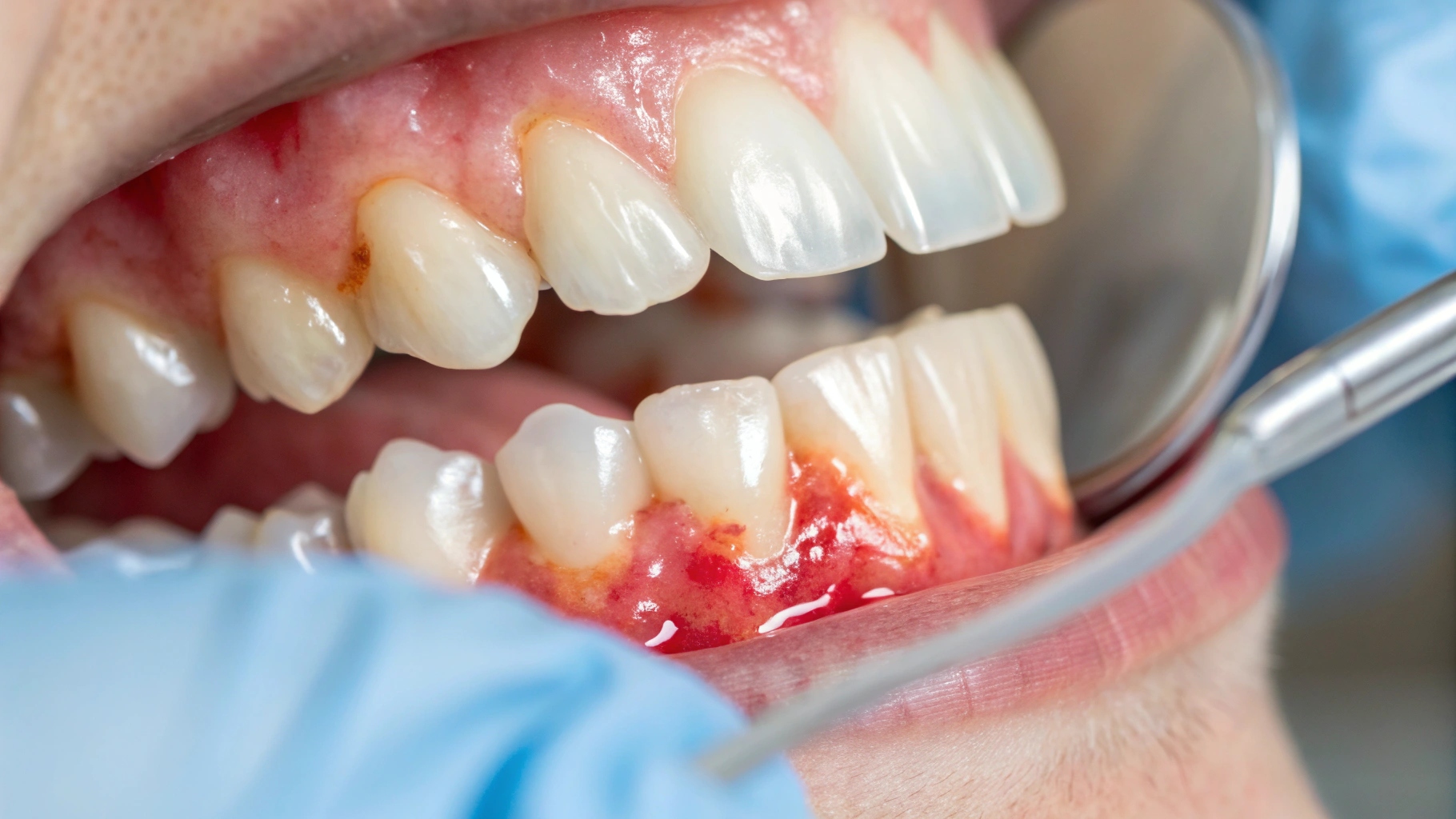
Introduction
Appetite loss, medically known as anorexia (not to be confused with the eating disorder anorexia nervosa), is a reduction in the desire to eat that can affect anyone at any stage of life. While many people associate appetite loss with obvious causes like stomach bugs or medication side effects, there are several subtle, often overlooked factors that can suppress your hunger without you realizing it. Understanding these hidden triggers is crucial because persistent appetite loss can lead to unintended weight loss, nutritional deficiencies, and even worsen underlying health conditions. This comprehensive guide explores nine subtle causes of appetite loss you might be ignoring, offering insights into how they affect your body and when to seek professional help.
Section 1: Understanding Appetite and Its Loss
Appetite is the desire to eat, influenced by a complex interplay of physical needs, emotional states, environmental factors, and sensory cues. Hunger, by contrast, is the body’s physiological signal that it requires energy. Loss of appetite means you no longer feel interested in eating, even when your body needs nutrients. This can be temporary, such as during a cold, or chronic, linked to ongoing medical conditions.
A temporary loss of appetite is common and usually resolves as the underlying cause—such as an infection—subsides. However, if the loss persists, it may signal a deeper issue and should not be ignored. Chronic appetite loss is especially concerning in older adults, who may already be at risk for malnutrition and related complications.
Section 2: The Major Causes of Appetite Loss
Most people recognize that illnesses like the flu or food poisoning can curb their hunger. Medications, especially those for pain, mental health, or chemotherapy, are also well-known culprits. But many less obvious factors can quietly suppress your appetite, often going unnoticed until health complications arise. Here are nine subtle causes that deserve attention.
1. Chronic Health Conditions
Many chronic diseases affect appetite indirectly. Conditions like chronic kidney disease, heart failure, chronic obstructive pulmonary disease (COPD), dementia, and liver disease are often associated with decreased hunger. “For example: A study of hospitalized older adults found that nearly 90% of those with appetite loss had at least one chronic condition, and over two-thirds had two or more”. These illnesses may alter metabolism, cause inflammation, or directly affect the brain’s appetite centers, leading to reduced food intake even when nutritional needs are high.
2. Mental Health and Emotional Factors
While stress can sometimes increase appetite, persistent anxiety or depression more often suppresses it. Emotional states like grief, sadness, or prolonged stress can disrupt normal eating patterns. In some cases, the body’s stress response releases hormones like epinephrine that temporarily diminish hunger, while chronic stress may alter cortisol levels over time, further disturbing appetite regulation. Social isolation, common in older adults, is another psychological factor that can lead to disinterest in meals.
3. Hormonal Imbalances
Hormones play a key role in regulating hunger and satiety. Conditions such as hypothyroidism (underactive thyroid), diabetes, and hormonal changes during pregnancy—especially in the first trimester—can all lead to appetite loss. Even subtle shifts in hormone levels, not always detected by routine blood tests, may be enough to affect your desire to eat.
4. Medication Side Effects
Medications, both prescription and over-the-counter, are a common yet frequently overlooked cause of appetite loss. Antibiotics, chemotherapy drugs, narcotics (like codeine and morphine), and even some mental health medications can suppress hunger. Weight loss drugs such as GLP-1 agonists (e.g., Ozempic, Mounjaro) are designed to reduce appetite, but similar effects can occur unintentionally with other medications. Polypharmacy—taking multiple medications—further increases the risk, with one study finding older adults with appetite loss were taking an average of 7.5 medications.

5. Mouth and Dental Issues
Pain or discomfort in the mouth, such as from sores, dental problems, or ill-fitting dentures, can make eating unpleasant and reduce appetite. This is especially relevant for older adults, who may not always communicate these issues to caregivers or healthcare providers. Even minor oral health problems can have a significant impact on nutritional intake over time.
6. Environmental and Seasonal Factors
External factors such as hot weather can suppress appetite, as the body seeks to avoid generating additional heat through digestion. Conversely, cold environments may increase hunger. These subtle environmental influences are often dismissed as temporary or unimportant, but they can contribute to reduced food intake, especially in vulnerable populations such as the elderly or those with chronic illnesses.
7. Aging and Sensory Changes
Natural aging brings changes in taste, smell, and the ability to detect hunger and fullness. Older adults may find food less appealing or may not notice when they are hungry, leading to skipped meals and gradual weight loss. These sensory changes are a normal part of aging but can significantly impact nutrition if not addressed.
8. Subclinical Inflammation
Low-grade, ongoing inflammation—common in many chronic diseases—can disrupt appetite regulation by altering metabolic pathways and hormone levels. This inflammation is often not detected until more serious symptoms appear, but it can quietly suppress hunger and contribute to muscle wasting and weight loss, a condition known as cachexia. Even in the absence of a diagnosed chronic illness, subclinical inflammation may be present and affect eating habits.
9. Digestive Discomfort
Mild digestive issues such as bloating, constipation, acid reflux, or food intolerances can dampen appetite without causing obvious symptoms. People may not connect occasional stomach upset with their lack of interest in eating, especially if the discomfort is mild or intermittent. Over time, these minor issues can lead to reduced food intake and nutritional deficits.

Section 3: Recognizing the Signs and Consequences
Appetite loss may seem harmless at first, but it can have serious consequences if ignored. Unintended weight loss, fatigue, weakness, and impaired immune function are common outcomes. In older adults, decreased appetite is strongly linked to frailty, falls, and longer hospital stays. Persistent loss of interest in food can also worsen existing chronic conditions and delay recovery from illness.
Regularly monitoring your eating habits and weight is important. Keeping a food diary can help identify patterns and trigger discussions with healthcare providers. If appetite loss is accompanied by other symptoms—such as fatigue, pain, or mood changes—it is especially important to seek medical advice.
Section 4: What You Can Do
Addressing subtle appetite loss begins with identifying its root cause. Here are practical steps to consider:
- Pay attention to your body’s signals and note any changes in hunger or eating patterns. Tracking meals and symptoms in a journal can provide valuable insights for healthcare providers.
- Discuss any persistent loss of appetite with your doctor, especially if you notice weight loss or other concerning symptoms. Blood tests, medication reviews, and evaluations for chronic conditions may be necessary.
- If medication side effects are suspected, do not stop taking prescribed drugs without consulting your healthcare provider. Sometimes, adjusting the dose or switching medications can resolve the issue.
- Opt for small, frequent meals and nutrient-dense snacks. Liquid nutritional supplements may help maintain adequate protein and calorie intake if solid foods are unappealing.
- For older adults, social meals and favorite foods can stimulate appetite. Addressing oral health issues and ensuring a pleasant mealtime environment are also beneficial.
- Manage stress through relaxation techniques, exercise, or counseling if emotional factors are contributing to appetite loss. Social engagement can also help, especially for those experiencing isolation.
Section 5: Prevention and Long-Term Management
Preventing appetite loss is not always possible, especially when underlying chronic illnesses are present. However, early recognition and intervention can minimize its impact. Regular health check-ups, medication reviews, and screening for mental health issues are important preventive measures. For those at risk—such as older adults or people with chronic diseases—proactive nutritional support and caregiver involvement can make a significant difference.
Conclusion
Appetite loss is a common but often underestimated symptom that can stem from a wide range of subtle causes. Beyond infections and medications, factors like chronic diseases, mental health, hormonal imbalances, mouth issues, environmental influences, aging, inflammation, and mild digestive discomfort can all quietly suppress the desire to eat. Recognizing these less obvious triggers is essential for maintaining good health and preventing complications related to poor nutrition. If you or a loved one experiences persistent appetite loss, consult a healthcare professional to identify the underlying cause and develop a personalized plan for nutritional support.
FAQs
1. What is the difference between hunger and appetite?
A. Hunger is the body’s physical need for food, driven by energy requirements. Appetite is the psychological desire to eat, influenced by emotions, habits, and sensory cues
2. When should I be concerned about appetite loss?
A. If your loss of appetite lasts more than a few days, is accompanied by weight loss or other symptoms, or affects your daily life, consult a healthcare provider
3. Can stress cause appetite loss?
A. Yes, acute stress can temporarily diminish appetite, while chronic stress may have more complex effects on eating patterns
4. Are older adults more likely to experience appetite loss?
A. Yes, appetite loss is more common in older adults due to chronic illness, medication use, sensory changes, and social factors
5. What can I do at home to improve my appetite?
A. Try eating small, frequent meals, choosing favorite foods, maintaining good oral health, and creating a pleasant eating environment. A food diary can help track patterns
6. Can medications cause appetite loss?
A. Many medications, including antibiotics, pain relievers, chemotherapy drugs, and mental health medications, can suppress appetite as a side effect
7. How does chronic illness affect appetite?
A. Chronic illnesses such as kidney disease, heart failure, COPD, and dementia can alter metabolism and inflammation, leading to reduced appetite and weight loss
8. Is appetite loss always a sign of serious illness?
A. No, many cases are temporary and resolve once the underlying cause (such as an infection) is treated. However, persistent or severe loss of appetite should be evaluated by a doctor

